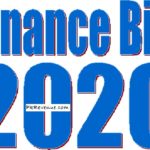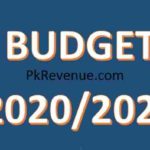LAHORE: Punjab Finance Minister Makhdoom Hashim Javan Bakht on Monday presented provincial budget for fiscal year 2020/2021. The total outlay of the budget is Rs2,240.7 billion.
The provincial government allocated Rs337 billion for development program during next fiscal year. The allocation is 32 percent is higher than the annual development plan of the outgoing fiscal year of Rs255 billion.
In order to mitigate the impact of coronavirus the Punjab government announced a tax relief package of Rs56.5 billion for the next fiscal year.
The provincial minister said that this year’s budget making exercise was a challenging and daunting task.
Covid-19 Pandemic created unprecedented financial crunch and great economic uncertainty. Finance Department responded to this challenge with prudent financial management, enhanced allocations for the Health Sector, and acute austerity measures for non-essential services while simultaneously ensuring releases for Development Expenditure.
Timely distribution of cash grants under Social Protection to the marginalized segments of society was ensured.
The highlights of Budget 2020-21 are fiscal discipline, impetus to the economy, prudent austerity, participatory budget making and Framework for Rolling Expenditure control for efficient spending throughout the year.
Social sector spending for welfare of the people of Punjab and tapping private investments by means of Public Private Partnership are envisaged and made an integral part of the Budget.
The other highlights of the provincial budget are:
PRIMARY & SECONDARY HEALTHCARE
• Integrated Program for Communicable Disease Control Punjab – Rs. 200 million
• Provision of Free Medicines – Rs. 15.7 billion
• Punjab Health Facility Management Company (PHFMC) – Rs. 6 billion
• Expanded Program for Immunization (EPI) – Rs. 5.7 billion
• Establishment of 200 bedded Mother & Child Health Hospitals at Rajanpur, Layyah & Mianwali –Rs. 720 million
• PM Health Initiative – Rs. 2.7 billion
• Pro Poor Patients Treatment on CM’s Directives – Rs. 600 million
SPECIALIZED HEALTHCARE & MEDICAL EDUCATION
• Establishment of Tertiary Care Hospital-Nishtar-II, Multan – Rs. 1 billion
• Provision of Missing Specialties for Up-gradation of DHQ Hospital to Teaching Hospital Gujranwala -Rs. 500 million
• Health Insurance Program, Punjab (potential beneficiaries – 5.3 million families) – Rs. 12 billion
• Establishment of Sardar Fateh Muhammad Khan Buzdar Institute of Cardiology, D.G. Khan – Rs. 1 billion
• Allocation for COVID-19 Prevention and Control – Rs. 3 billion
• Provision of free medicines – Rs. 22 billion
HIGHER EDUCATION
• University of Chakwal – Rs. 95 million
• Baba Gurunanak University, Nankana Sahib (Phase-I) – Rs. 50 million
• Establishment of Ghazi University, D.G. Khan – Rs. 70 million
• Establishment of Thal University at Bhakkar – Rs. 30 million
• Chief Minister’s Merit Scholarships (CMMS) – Rs. 540 million
AGRICULTURE
• National Program for enhancement of Crop productivity of Wheat, Rice, Sugarcane & Oil Seeds – Rs. 1.68 billion
• Subsidy on Agricultural Inputs Rs. 4 billion
• Interest Free Loan Scheme for Farmers – Rs. 1.86 billion
• Fasal Bima Scheme (Crop Insurance) – Rs. 1.30 billion
COMMUNICATION & WORKS
• Rural Accessibility Program (Phase – 2) – Rs. 10 billion
• Dualization of Dina – Mangla Road – Rs. 300 million
• Development Package of Mianwali having 42 Roads. – Rs. 2.1 billion
• Construction of flyover at Nadirabad Phatak to Industrial Estate, Multan – Rs. 300 million
• Arterial Roads Improvement Program – Rs. 1 billion
SOCIAL PROTECTION
• Ba-Himmat Buzurg Program (for old age people having age 65 and above) – Rs. 3.6 billion
• Sila-e-Funn Program (for poor artists aged 50 and above) – Rs. 100 million
• Masawaat Program for Transgender people – Rs. 200 million
• Nai Zindagi Program (Medical & Psychological rehabilitation for Acid Attack Victims) Rs. 200 million
• Sarparast Program (for widows & orphans) – Rs. 1.5 billion
• Khiraj ush Shuhada Program (for families of Civilian Martyrs of Terrorist Attacks) – Rs. 150 million
• Hamqadam Program (for persons with disabilities) – Rs. 3.6 billion
• Zevar-e-Taleem Program (for school going poor girls) – Rs. 5 billion



